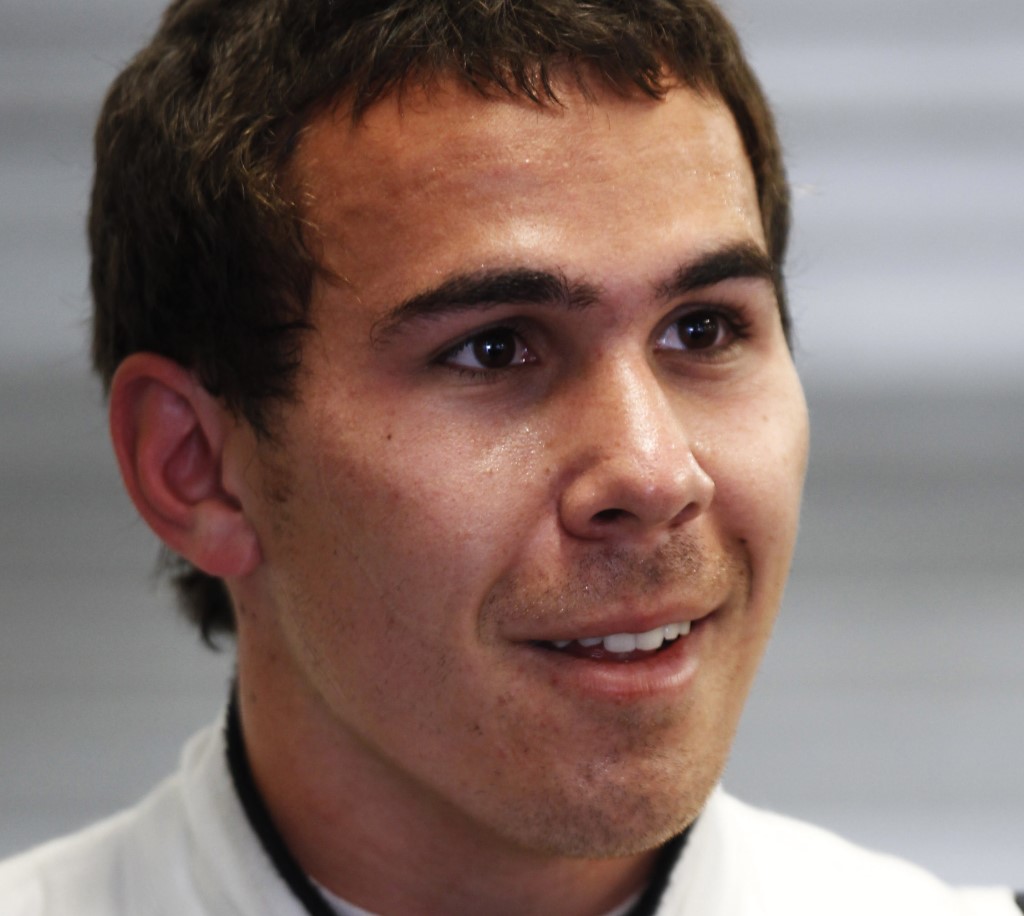F1 Young Drivers Test – Just bring money
 |
| Robert Wickens – one of the few drivers not paying to test |
Since its inception in November 2010, the Young Drivers Test at Yas Marina has been billed as providing a glimpse at the "future of Formula One".
Yet this year some teams have been accused of using the three-day program as a means of making money rather than a means of discovering a future world champion.
The program comes to a close today, with 25 fledgling drivers expected to have taken to the track at some stage since Tuesday morning.
Some of them, such as Robert Wickens, the Canadian driver, undoubtedly deserve to be here: the 22 year old was afforded the chance to test on Tuesday with Renault after winning the 2011 Formula Renault 3.5 Series championship.
He impressed, finishing third, and will today test with Virgin Racing, the England-based team with whom he has been reserve driver this season.
Other drivers' achievements are not so obvious. When Fabio Leimer announced he would take part in this week's test for Sauber, eyebrows were raised. The Swiss driver finished 14th in the GP2 series.
Likewise, Rodolfo Gonzalez, a Venezuelan, finished 26th in GP2, yet tested on Tuesday for Team Lotus.
Leimer confirmed last week that he had paid for his seat, but refused to say how much. "That's just the way it is in Formula One," he said. "But first you have to be in the position to do so."
It is understood Toro Rosso, Red Bull Racing's sister team, made their test seats available to the highest bidder, with €200,000 (Dh992,802) per day being touted, while Auto Moto und Sport, the German magazine, reported a seat in a middle-order car would cost up to €300,000 per day.
Stefano Coletti, a promising 22 year old driver from Monaco, appeared in the hot-seat for Toro Rosso on Tuesday and returns this morning. When asked for his thoughts on paying for a test, he appeared to consider it money well spent.
"It is good for the drivers to get experience because things like this you can't do it all the time," Coletti said.
"It's a big opportunity for drivers and if any other drivers are thinking about doing it, I think they should, because the amount of experience you get in a day like this, you never get anywhere else."
Coletti added, however, that he did not feel as if he were being used to generate income. "This test wasn't about money because usually when it is just about making money, you put fuel in, put some tires on and go. We did a lot of testing," he said.
While fingers may be pointed at Sauber for their use of Leimer, it should be noted that similar accusations were made of the Swiss team last year when they tested – and then signed – Sergio Perez.
The Mexican driver is close friends with Carlos Slim Domit, son of the world's richest man, and is also backed by Telmex, who help financially support Sauber. It was no secret his sponsors' checkbook helped secure him his seat at motorsports' top table, yet he has performed admirably in his debut F1 season, scoring 14 points so far.
Dani Clos, a Spanish driver testing this weekend with the Hispania Racing Team, acknowledges he is "one of the drivers who needs to pay to get into Formula One".
"Even if you win GP2, you will need to pay because nowadays the teams need that money," said Clos, who finished ninth in this season's GP2 series. "It's no longer enough to just be talented. If you are talented, perfect, if you win, perfect, but you also have to have someone pushing for you economically. The teams need this money to survive and bring new stuff to the car."
In a racing series like GP2, all the drivers are quick, said Clos, but there is a small pool of exceptional talent that is notably quicker. The importance of money is resulting in F1 test seats being filled by drivers who should be behind in the pecking order.
"These guys who are 'exceptional' – and I include myself in that group – have things more difficult now, because these other guys who can bring a couple of million [euros] with them, they are quick anyway and they can provide good feedback," Clos said. "It's tough."
As well as wealthy drivers filling seats, Formula One also has a problem with older drivers outstaying their welcome, Clos added.
"There are some drivers in F1 who need to start thinking about getting out because they have been there many years and there are young drivers who are waiting to come up," he said.
Michael Schumacher, 42, and Rubens Barrichello, 39, have both competed in every round of this year's championship, while Pedro de la Rosa, 40, filled in for Perez when he was forced to miss the Canadian Grand Prix with concussion.
